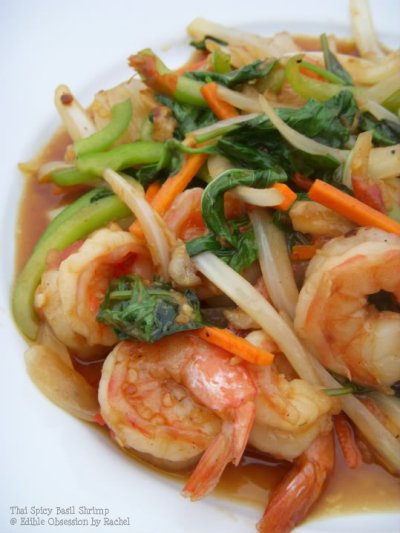REWahoo
Give me a museum and I'll fill it. (Picasso) Give
My very favorite Thai dish:
Thai Spicy Basil Shrimp
I enjoy it almost every Sunday for lunch at our favorite restaurant. And tomorrow is Sunday!
Thai Spicy Basil Shrimp
I enjoy it almost every Sunday for lunch at our favorite restaurant. And tomorrow is Sunday!


